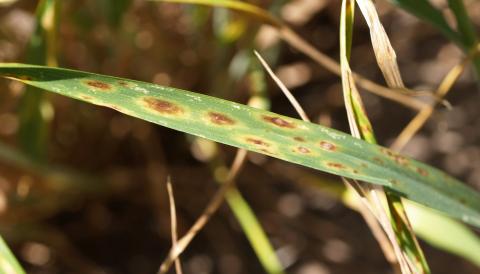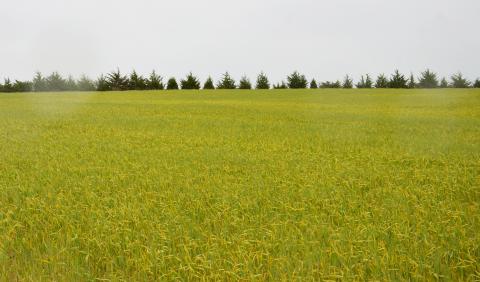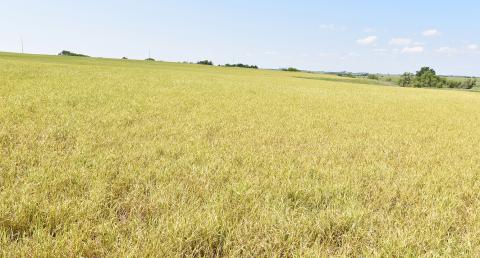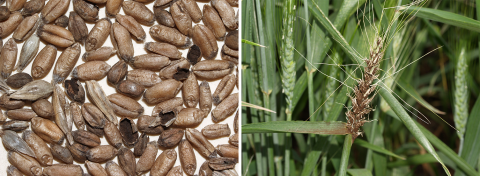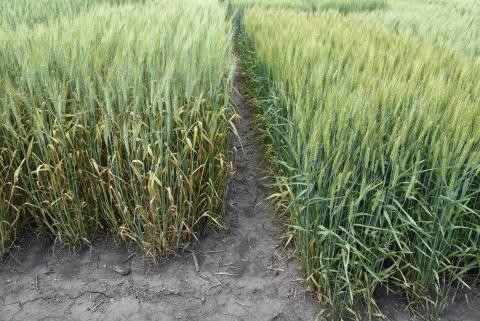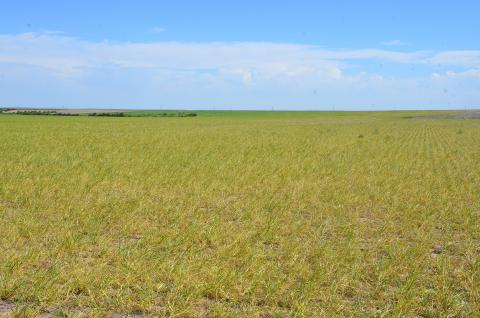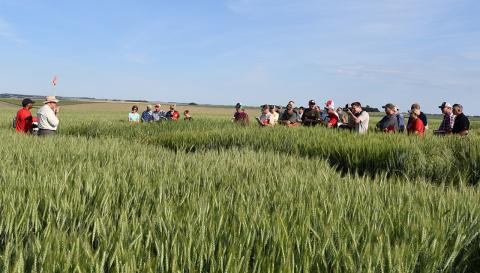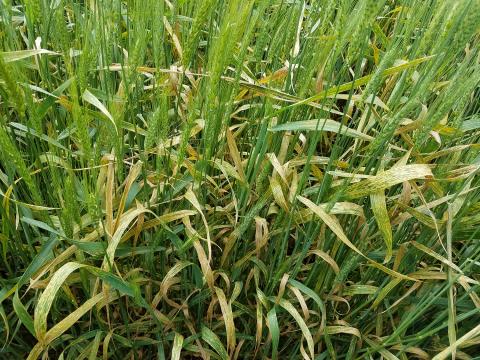Risk Factors and Management Recommendations for Wheat Diseases in Nebraska
August 30, 2017
What factors contribute to diseases in wheat and what management steps can help deter wheat disease problems. Also addressed is how to use integrated pest management to reduce threats that could rob yields.
5 Pre-Planting Steps to Reduce Disease Problems in Wheat
August 28, 2017
Before planting winter wheat this fall growers have an opportunity to address and manage several factors that could lead to reduced yields in 2018. Here are five steps to take.
Protect Future Wheat Yields: Control the Volunteer Green Bridge
August 2, 2017
Wheat streak mosaic virus (WSMV) problems have been extensive throughout the western Great Plains this year, significantly reducing the yield potential of many fields. A critical key in managing this threat in the next crop is elimination of volunteer wheat. Tillage or chemical weed control should occur at least one month before planting to allow host plants time to dry up and cease being a host.
The Importance of Certified, Fungicide-Treated Wheat Seed
July 31, 2017
Planting clean, certified, fungicide-treated wheat seed is one of the first steps in assuring top yields from your 2018 wheat crop. Another is selecting resistant varieties, where available. Together these practices can help you more effectively manage seed-transmitted diseases of wheat.
2017 Stripe Rust Ratings from Eastern Nebraska Wheat Variety Trials
July 14, 2017
This year the onset of stripe rust was earlier in eastern Nebraska than in western Nebraska, allowing it to develop to levels that could be scored in state variety trials in Washington, Saunders, and Clay counties. A table provides ratings for a number of varieties and lines at three sites.
Why Control of Volunteer Wheat is Critical to Protecting 2018 Yields
July 13, 2017
Timely control of volunteer wheat and other weeds is key to managing yield loss risk in your 2018 crop. Yield-limiting risk factors affected by weed control include wheat streak mosaic and other diseases, insects (wheat stem sawfly and disease vectors), moisture loss, and increased weed seed production.
Wheat Disease Update: Stripe Rust, Leaf Rust, Wheat Streak Mosaic at High Levels
June 9, 2017
A survey of fields in south central, southeast, and northeast Nebraska shows wheat diseases increasing in severity and occurrence. Stripe rust and leaf rust have developed to severe levels in fields plant with susceptible varieties that weren't sprayed to protect the flag leaf.
Stripe Rust Predominant Disease in Nebraska Wheat
May 26, 2017
In a survey of wheat fields and research plots in south central and southeast Nebraska on May 24-25, stripe rust was the predominant fungal disease found. Its increase is due to the rainfall and cool temperatures that have prevailed during the last two weeks.

